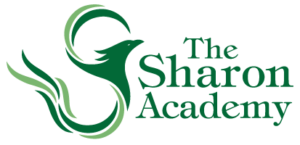World Languages
In this Section
|
The Sharon Academy offerings in world languages help students read, write, speak, and listen for meaning in Spanish or French. We use state standards and ACTFL (American Council on the Teaching of Foreign Languages) guidelines to shape our curriculum and pedagogy, using a selection of texts and authentic materials. Focus is on a positive learning environment where students feel comfortable taking risks and making mistakes in the language. Whether we are tackling grammatical structures, vocabulary building, cultural awareness, pronunciation or conversational fluency, the emphasis is always on encouraging students to push themselves out of their linguistic comfort zones while providing a safe space in which to do so.
The world language department affirms recent research that studying additional languages helps in brain development in a variety of ways that are beneficial to individual students (see www.ACTFL.org resources). This assists us in our mission of nurturing intelligent, independent and creative thinking in our small school community and awakens students to their immense potential. The awareness students gain of the francophone and Latino cultures encourages connections to the broader world.
Students will use bilingual dictionaries or online translators only for single-word translations or to check their understanding. We recommend dictionaries (as opposed to online translators), as they give multiple translations from which you can select, depending on context. Students who use online translators to translate bulk text for homework or projects (i.e., phrases, sentences or paragraphs) will be in violation of the honor code and subject to repercussions.
Additionally, we recognize that culture and language are intertwined. Students cannot truly master a language until they understand the cultural context in which the language occurs. This is why our classes put an emphasis on culture.
Please note: Passing a World Language course does not necessarily indicate that a student has mastered the content well enough to advance to the next level. If the teacher is concerned about a student’s promotion to the next level, he/she will contact the family to discuss placement options.
Spanish
Novice I and II
Students begin their work in Descubre , a computer and text-based program using DVDs, CDs, cultural exploration, oral games and exercises to enhance the learning of Spanish. Students are introduced to the basic workings of the present and past tenses.
Intermediate I and II
Students in Intermediate I continue with the sequence of grammar as it is presented in the Descubre series, but may not use the text as frequently depending on the discretion of the teacher. Students in Intermediate II begin Encuentros Maravillosos, an advanced-level textbook using excerpts from Latin American and Spanish literature to guide further exploration of grammar and vocabulary. Intermediate students create individual and collaborative dialogues and projects in the target language.
Advanced
The focus of this course is to build fluency through daily conversations and in-depth explorations of Latin American literature, film and music. Classes are conducted in Spanish and students speak English only when absolutely necessary. Depending on the year and the group of students the following books/films are part of the curriculum: In the Time of the Butterflies
(Julia Alvarez,) Like Water for Chocolate (Laura Esquivel), The House on Mango Street (Sandra Cisneros), Guantanamera (Tomás Gutierrez Alea). Students write essays and literary responses as well as review all grammar previously covered. Students may choose to take the SAT Subject Test in Spanish.
French
Building proficiency in French is the primary goal of the program. Each year, students build on their previous year’s level of comprehension and communication skills. The goal is for students to build on mastery of listening comprehension, reading comprehension, speaking and conversation, grammar, writing, and culture in French-speaking countries or regions. The majority of class time will be in French, with limited scaffolding in English. We expect students to communicate as much as possible in French and to refrain from use of English in their work (both oral or written). This can be very challenging for many students. However, in learning a language, the greatest growth happens when students have to find creative ways to work around an unknown or forgotten word. In this context, the attempt is more important than accuracy. (Please see the American Council on the Teaching of Foreign Languages (www.actfl.org) for more information on this teaching philosophy, including the ACTFL Position Statements, proficiency guidelines and supporting research.)
Français Novice 1
Novice level students will use Discovering French Bleu workbook and textbook primarily. They will quickly move from the basic study of the alphabet, numbers and greetings. Over the year, they will cover basic vocabulary and grammar. At the end of the year, they will be familiar with basic verb conjugations, articles, prepositions and adjectives. They will be able to communicate concerning their likes and dislikes, family, food, weather, daily activities, descriptions of people and objects.
Français Novice 2 and Intermediate 1
Students will use the textbook Discovering French Blanc along with different class activities. Over the year, they will increase their communication skills through vocabulary about food, entertainment, sports, health and home. They will study different prepositions, pronouns, irregular verbs and adjectives. Students will build communication fluency in both the present and past tenses. More reading material will be incorporated into the curriculum.
Français Intermediate 2 and Advanced
Students will use the Discovering French Rouge as a resource, but will also develop their communication skills through exploration of francophone literature and culture, drawing on a variety of texts and materials. They will start reading level appropriate books and will be responsible for several oral mini-presentations. Students will be expected to write on a regular basis and use French as their primary language in class.
Revised September 2017
